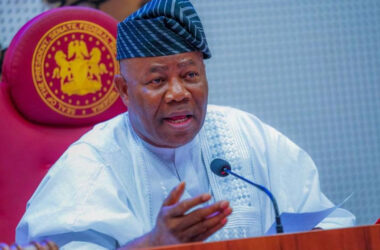The familiar, almost theatrical, spectacle of political defections has once again gripped Nigeria. Politicians, like seasoned actors switching roles mid-play, are jumping ship with a nonchalance that borders on the absurd. This “defection drama” isn’t just a quirky political sideshow; it’s a stark reflection of the deep-seated issues plaguing our political landscape.
The justifications offered for these migrations are often laced with platitudes: “national interest,” “alignment with progressive forces,” or the ever-reliable “internal party crisis.” However, these carefully crafted narratives struggle to conceal the underlying truth: a relentless pursuit of power, access to resources, and the preservation of personal political relevance.
This constant shuffling of allegiances breeds a corrosive cynicism within the electorate. It reinforces the perception that Nigerian politics is a game of personal enrichment, devoid of genuine ideological conviction. The idea of serving the public good becomes a distant, almost laughable, concept. This transactional approach to politics, where loyalty is a mere commodity, undermines the very foundation of our democracy.
A key driver of this defection frenzy is the glaring lack of ideological distinction between many of our political parties. They often resemble empty vessels, vehicles for personal ambition rather than platforms for distinct policy agendas. This absence of ideological grounding makes it incredibly easy for politicians to justify their moves, as they are essentially swapping one platform of convenience for another.
Furthermore, the weakness of internal party mechanisms exacerbates the problem. Parties fail to enforce discipline or hold members accountable. This lack of internal democracy allows politicians to act with impunity, knowing they can switch sides without facing significant repercussions. The party, in many cases, is seen as a stepping stone rather than a long term commitment.
The implications of this political carousel are profound. It weakens the concept of party loyalty, making it impossible for voters to hold elected officials accountable. It fosters instability and unpredictability, hindering the development of coherent policies and long-term plans. It ultimately breeds a deep distrust in the entire political process.
To break this cycle, a multifaceted approach is required. Firstly, parties must strengthen their internal structures and enforce discipline. Clear guidelines on party loyalty and meaningful sanctions for defection are essential. Secondly, electoral reforms that promote issue-based politics and reduce the overwhelming influence of money and patronage are urgently needed. Thirdly, the Independent National Electoral Commission (INEC) must rigorously enforce electoral laws, ensuring a level playing field and preventing the manipulation of the system for political gain.
Ultimately, the responsibility rests with the Nigerian electorate. We must demand greater accountability from our elected officials and reject politicians who prioritize personal gain over public service. We must move away from a system where political allegiance is a mere transaction and towards one where politicians are held accountable for their promises and actions.
The defection drama playing out across the nation is not merely a spectacle; it is a symptom of a deeper political malady. It is a clarion call for a fundamental shift in our political culture, towards one that values integrity, accountability, and the genuine pursuit of the public good. Only then can we hope to build a democracy that truly serves the people.







